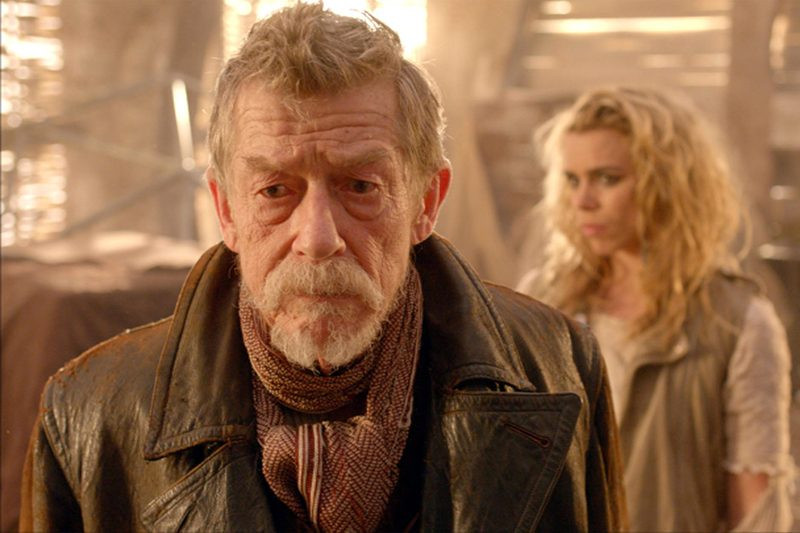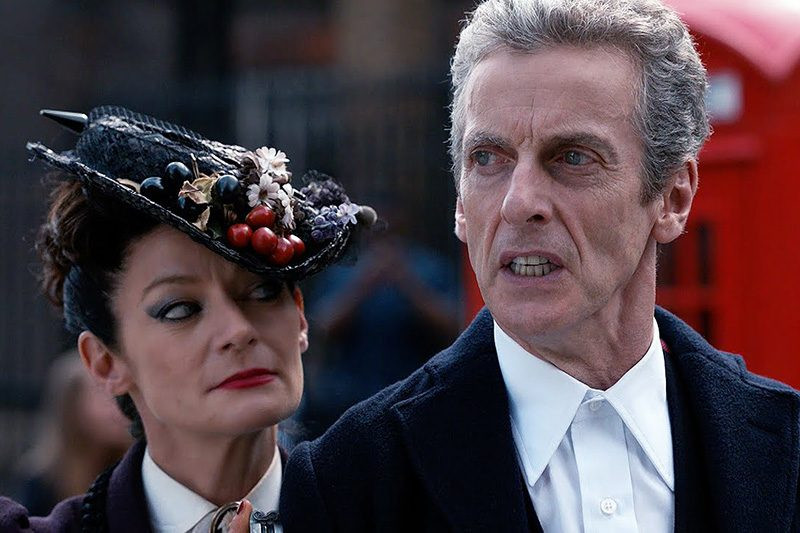Since the very beginning, a shroud of mystery has surrounded the enigmatic Time Lord known as the Doctor. One of the most persistent and intriguing questions in the Doctor Who universe is, what is the Doctor’s name? It’s a question that has fueled fan theories, in-universe conspiracies, and countless episodes dedicated to hinting at, but never quite revealing, the answer. The Doctor themselves seems determined to keep their true moniker a secret, adding layers of intrigue to their already complex persona.
From the Tenth Doctor’s horrified reaction to River Song uttering his name, suggesting it was information reserved for the most intimate of moments (perhaps a Time Lord wedding, as hinted at during his Eleventh incarnation’s marriage ceremony), to the Carrionite witch Lilith’s claim that the Doctor hid his name “in despair,” the series has consistently emphasized the significance and secrecy surrounding this piece of personal information. Even psychic individuals like Evelina have struggled to grasp his “true name,” stating it was “hidden” even from her considerable abilities.
As the Doctor regenerated into his Eleventh form, the secrecy intensified. Dorium Maldovar ominously declared that the question ‘Doctor Who?’ was “The question that must never be answered.” Powerful entities like the Great Intelligence and the sinister Silence organization were obsessed with either uncovering or suppressing the Doctor’s name, highlighting its potential power and danger. In a dramatic climax during Eleven’s regeneration, we learned the Time Lords intended to use the Doctor’s real name as a signal for their return, a plan only thwarted by Clara Oswald’s intervention, who rightly argued that “the Doctor” was the name that truly mattered.
Even Clara, the impossible girl, briefly glimpsed the Doctor’s real name in the apocryphal History of the Time War, only to have her memory wiped by timey-wimey paradoxes. And after the groundbreaking revelations of The Timeless Children, we are left wondering if even the Doctor themselves is fully aware of their original birth name, given the tampering with their past. It’s a puzzle box of secrets within secrets, but let’s dare to disrespect the Doctor’s privacy (and potentially the safety of the universe) and delve into the most compelling theories surrounding what the Doctor’s name might be.
The Enigma of the Doctor’s Name
The enduring mystery surrounding the Doctor’s name is a narrative thread woven deeply into the fabric of Doctor Who. It’s not merely a forgotten detail; it’s a deliberately guarded secret that speaks to the Doctor’s identity, their past, and their relationship with the universe. The reactions of characters like River Song, ranging from shock to reverence, underscore the name’s profound significance. The fact that powerful adversaries and allies alike have sought to control or understand this name further emphasizes its importance within the lore. This deliberate obfuscation makes the question “what is the Doctor’s name?” far more than a simple trivia query; it’s an exploration of the Doctor’s very being.
Theory 1: “The Doctor” is the Real Name
 John Hurt as The War Doctor
John Hurt as The War Doctor
Could it be that the simplest answer is the correct one? Is “the Doctor” actually the Doctor’s real name? While it might seem too straightforward for a being as complex as a Time Lord, we need to consider the possibility that “Doctor” isn’t a title, but a given name, perhaps as common on Gallifrey as “Chris” or “Sarah” on Earth.
However, evidence within the show suggests otherwise. In The Name of the Doctor, Matt Smith’s Eleventh Doctor explicitly tells Clara that he chose the name “the Doctor” as a promise. This wasn’t a birth name, but a self-imposed moniker representing a solemn vow: “never to be cruel or cowardly; to never give up, and never give in.” Significantly, he abandoned this title during the Time War, feeling his actions as a warrior didn’t align with the promise inherent in the name “Doctor.”
Adding to the argument that “Doctor” is an alias, the Valeyard, a darker potential future incarnation of the Doctor, refers to it as such. Similarly, the Master, in his typical mocking fashion, derides the Doctor for styling himself as “the man who makes people better.”
Yet, in a fascinating twist, River Song offers a counter-narrative. She posits that humanity, and indeed the universe, derived the very word “Doctor,” meaning “healer and wise man,” from the Doctor’s legendary exploits. According to River, the Doctor’s actions and reputation preceded the name, shaping its meaning across civilizations. This intriguing idea, revealed by Steven Moffat, suggests a cyclical relationship between the Doctor and their chosen name. While “Doctor” might not be a birth name, it has become intrinsically linked to the very concept of a healer and wise figure throughout the cosmos, all thanks to this Doctor.
Interestingly, the Doctor does hold numerous actual doctorates, including a seemingly less prestigious, yet perhaps equally important, doctorate in cheese-making, as revealed in The God Complex. Though, the validity of the cheese-making doctorate remains, like so much about the Doctor, shrouded in humorous ambiguity.
Theory 2: “John Smith” – The Earth Alias
 David Tennant and Freema Agyeman in Doctor Who (BBC)
David Tennant and Freema Agyeman in Doctor Who (BBC)
Beyond “the Doctor,” the most frequently used alias in the Doctor’s repertoire is undoubtedly “John Smith.” This unassuming name has become the Doctor’s standard pseudonym when operating on Earth, particularly when a low profile is required. Jon Pertwee’s Third Doctor famously adopted the name during his extended exile on Earth in the 1970s (or was it the 80s, time gets complicated), and the alias has persisted through various incarnations. Even the Twelfth Doctor utilized “John Smith” while undercover as a caretaker at Coal Hill School.
More significantly, the Doctor became John Smith in a very literal sense when he chose to become human to evade the relentless Family of Blood. In this instance, “John Smith” wasn’t just a superficial alias; it was a fully realized human identity with memories and a life of its own. Adding a touch of bureaucratic humor to the mystery, “John Smith” is even the name emblazoned on the Doctor’s library card, a detail that is likely, and hilariously, illegal. This repeated and ingrained use of “John Smith” highlights its significance as more than just a random pseudonym; it’s become an almost ingrained part of the Doctor’s Earthly persona.
Theory 3: “Theta Sigma” – A Gallifreyan Nickname?
“Theta Sigma,” or ΘΣ for those who prefer the Gallifreyan script, emerges as a potential clue from the Doctor’s Time Lord Academy days. This nickname was revealed by Drax, a fellow student from “the class of ’92” (presumably a Time Lord academy year), whom the Fourth Doctor encountered in The Armageddon Factor.
The introduction of Theta Sigma was seemingly an attempt by writer Anthony Read to playfully answer the series’ title question within the script itself. However, this was largely dismissed as throwaway banter and widely interpreted as a schoolyard nickname, a notion seemingly confirmed by the Seventh Doctor in The Happiness Patrol.
Despite its seemingly casual introduction, “Theta Sigma” might hold a deeper connection to the Doctor’s real name. Nicknames often bear some resemblance to the original name, even if playfully distorted (unless you’re Sting, perhaps). Delving into early Doctor Who lore, The Making of Doctor Who, a 1972 reference guide penned by script editor Terrance Dicks and writer Malcolm Hulke, casually asserted that the Doctor’s real name was δ³Σx². Therefore, “Theta Sigma” could be a simplified, pronounceable, and humorous derivation of this more complex Gallifreyan designation. While the exact meaning of δ³Σx² remains shrouded in mystery (and possibly fictional technobabble), “Theta Sigma” offers a tantalizing, if slightly tongue-in-cheek, glimpse into a potential Gallifreyan origin of the Doctor’s name.
Theory 4: Titles of Legend and Fear
 Matt Smith in Doctor Who (BBC)
Matt Smith in Doctor Who (BBC)
Throughout their travels, the Doctor has accumulated a plethora of dramatic and often fear-inducing titles bestowed upon them by their enemies. Names like “The Oncoming Storm,” “The Beast,” “Predator of the Daleks,” “The Great Exterminator,” and “The Destroyer of Worlds” paint a picture of a formidable and often terrifying figure.
These titles, while certainly evocative and reflecting the Doctor’s impact on the universe, are clearly not personal names. They are titles of reputation, earned through actions and fear, designed to intimidate and acknowledge the Doctor’s power. While undeniably cool-sounding, and perhaps names the Doctor secretly enjoys, they are more akin to war cries or epithets than a true name. If enemies truly wanted to be insulting, perhaps opting for names like “Custard Face” would be far more effective at getting under the Doctor’s skin.
Theory 5: An Unpronounceable Name
Another intriguing theory suggests that the Doctor’s real name is simply unpronounceable by human vocal cords or comprehensible to human minds. The Sixth Doctor once offhandedly remarked to Peri that his real name was beyond her ability to pronounce. While this comment was made in a Radio 4 special (placing its canonicity in a grey area) and delivered by the notoriously curmudgeonly Sixth Doctor (known for his low opinion of… well, everyone), it raises an interesting point.
Later, Peter Capaldi’s Twelfth Doctor, in his final moments, echoed this sentiment, suggesting his name was largely incomprehensible, except perhaps to a child “with your heart in the right place.” This implies that the Doctor’s name might exist outside the realm of conventional language, possibly resonating on a different level of perception or understanding. Perhaps the Sixth Doctor’s comment wasn’t just xenophobic rudeness, but a genuine, albeit poorly delivered, explanation of the nature of his true name.
Theory 6: “Doctor Who” – Hidden in Plain Sight?
 Peter Capaldi and Michelle Gomez in Doctor Who (BBC, HF)
Peter Capaldi and Michelle Gomez in Doctor Who (BBC, HF)
Could the answer to “what is the Doctor’s name” be staring us in the face all along? The most audacious and perhaps most fitting theory is that the Doctor’s real name is “Doctor Who.” This seemingly absurd idea has surprising amounts of in-universe evidence to support it.
Going all the way back to the 1966 William Hartnell era story The War Machines, the supercomputer Wotan declares, “Doctor Who is required, bring him here.” While the out-of-universe explanation is likely a writer’s oversight, within the context of the show, it’s a significant moment. Wotan, a highly advanced AI, directly refers to the Doctor as “Doctor Who.”
This wasn’t an isolated incident. In a later episode, Patrick Troughton’s Second Doctor, while attempting a German disguise, used the name “Doctor von Wer” (Doctor of Who). He also signed a message simply “Dr W.” These instances, while potentially coincidental, contribute to the growing sense that “Doctor Who” might be more than just a title.
Then there are the countless “Doctor? Doctor who?” gags peppered throughout the series, a running joke that playfully hints at the literal interpretation of the show’s title. And, perhaps most significantly, Dorium Maldovar’s cryptic warning: “The first question. The question that must never be answered, hidden in plain sight. The question you’ve been running from all your life. Doctor who? Doctor who? Doctor who?” The phrase “hidden in plain sight” is key here. What could be more “in plain sight” than the very name of the show, the title that flashes across the screen at the beginning of every adventure?
Michelle Gomez’s Missy certainly embraced this theory. When she briefly stepped into the Doctor’s shoes in World Enough and Time, she declared herself “Doctor Who,” insisting that it was his real name. “He chose it himself, trying to sound mysterious,” Missy claimed, “And then he dropped the ‘Who’ when he realised it was a tiny bit on the nose.” Even the Doctor, when confronted with Missy’s assertion, doesn’t outright deny it, merely stating, “Her name is not Doctor Who, my name is Doctor Who.” Nardole’s puzzled “It’s not is it?” is met with the Doctor’s surprisingly accepting reply, “I like it.”
Given the revelations of The Timeless Children, which cast doubt on the Doctor’s own knowledge of their past and origins, perhaps embracing the ambiguity of “Doctor Who” is the most fitting approach. As Steven Moffat himself has mused, maybe the mystery is the point.
Conclusion
So, what is the Doctor’s name? The truth is, there is no definitive answer, and that’s precisely the point. From the possibility that “The Doctor” is the real name, to the Earthly alias “John Smith,” the Gallifreyan-esque “Theta Sigma,” the intimidating titles bestowed by enemies, the notion of an unpronounceable name, and the audacious theory that it’s “Doctor Who” all along, the mystery persists.
The Doctor’s carefully guarded secret is an integral part of their character. It underscores their alien nature, their deliberate distance from others, and the weight of their untold history. Perhaps the most fitting answer is that the Doctor’s name is, and always will be, a question. And maybe, just maybe, the answer is indeed hidden in plain sight, in the very title of the show we love. Ultimately, the enduring mystery of the Doctor’s name is just one more layer to the rich tapestry of Doctor Who, a question that keeps us engaged, theorizing, and forever fascinated by the Time Lord in the blue box.
This article was previously published in 2017.
Doctor Who is available to stream on BBC iPlayer with episodes of the classic series also available on BritBox – you can sign up for a 7-day free trial here.
For more, check out our dedicated Sci-Fi page or our full TV Guide and Streaming Guide.
Ad
Try Radio Times magazine today and get 12 issues for only £1 with delivery to your home – subscribe now. For more from the biggest stars in TV, listen to The Radio Times Podcast.


